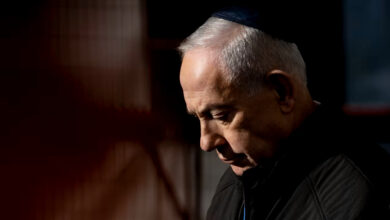
GAZA/JERUSALEM (Reuters) – The Israel-Gaza border was quiet on Friday after an Egyptian-brokered truce ended a surge in violence that had shaken southern Israel and the Gaza Strip for two days.
But the ceasefire will face its first test later in the day, as Palestinians in Gaza planned on resuming weekly border protests, which at times have become violent.
After a quiet night, Israel’s military told residents in the south, who had spent much of the past two days in rocket shelters, they could return to their daily routines.
A rise in cross-border rockets and air strikes in recent weeks has prompted the United Nations and Egypt to try to broker a truce to prevent another all-out conflict.
Since the escalation on Wednesday, Palestinian militants fired scores of rockets including a long-range missile deep into Israel and Israeli aircraft struck more than 150 targets in Gaza.
A pregnant Palestinian woman and her 18-month-old child were killed in the Israeli attacks, as was a Hamas militant. Seven people were wounded by Palestinian rockets and mortars that struck Israel.
Palestinian officials said a truce had been reached with Egyptian mediation. There was no formal comment from Israel, which rarely acknowledges reaching any such agreement with Hamas.
Hamas, an Islamist group designated by most Western countries as a terrorist organization, has fought three wars with Israel in the past decade.
With the ceasefire holding, organizers of border protests against Israel drove through streets of Gaza with loudspeakers, calling for a massive attendance.
Gazans have held weekly protests since March 30, some of which have become violent, to demand the right of return for Palestinian refugees. The Israeli army has killed at least 158 Palestinians during those protests, and a Gaza sniper killed an Israeli soldier.
Egypt and the United Nations have been trying to mediate a comprehensive cease-fire to prevent an escalation in fighting and to ease the deep economic hardship in Gaza, a narrow strip of land that is home to two million Palestinians.
Reporting by Nidal al-Mughrabi and Ari Rabinovitch, Editing by William Maclean.




